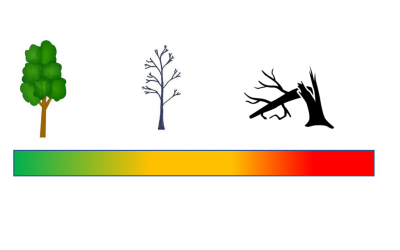Stress Awareness Month – April 2021
As April in the UK is Stress Awareness Month and many business are preparing to get back to (some kind) of normality, we wanted to explore the possible link between Incidents and Mental Health. In particular, there is perhaps no better time to consider whether our state of mind could correlate with the frequency of incidents and highlight our potential risks to them.
The new ‘normal’?
It became the norm for many to work from home and have regular Zoom, Webex or Skype conversations with our friends, family and work colleagues. For others, going into the same sites or places of work that had done many times before, presented new daily risks and required new ways of working, even thinking about where we sat, ate our lunches and how far we had to be away from the next person.
Even before the pandemic, psychological ill-health related problems appear to be a significant feature of UK working life with the HSE reporting greater than 30% of the working population experiencing psychological distress, and around 20% reporting that they find their work very or extremely stressful. In 2019/20 stress, depression or anxiety accounted for 51% of all work-related ill health cases and 55% of all working days lost due to work-related ill health.
This means that, if there were clear negative effects of psychological ill-health on individual’s safety, this could be a significant issue for UK business.
Do typical daily activities present a risk?
Recent research conducted by the Stress Management Society, identified that that 65% of people in the UK have felt more stressed since the COVID-19 restrictions began in March 2020. The three key causes for concern are feelings of disconnection, uncertainty, and a worrying loss of control.
How many of us as employees or even employers considered the effects or loss of control on even some of our even typical activities such as driving to the shops or a place of work? For example, are we at greater risk now travelling to our favourite supermarket or back to our place of work than we originally were?
It’s down to us all to consider the risks and something that was once an automatic skill such as driving a car, we may now have to consciously think about. Are the hazards the same or different because of recently low volumes of traffic becoming more varying amounts of traffic the majority not used to the same constraints? And so on.
Fundamentally, we are all now having to think more about what we are doing and how we are doing it; whether this being out of practice or because of changes in our mental wellness. The actual correlation between the levels of accidents and mental wellbeing has been a little studied phenomenon compared to other areas but as legislation becomes strengthened and politicians highlighting this as a key area of focus (Boris Johnson’s Queen’s speech in 2019), then perhaps more consideration and more research needs to be carried out.
Long term health issues
If nothing else, research suggests that longer-term psychological ill-health such as clinical anxiety and depression has a significant negative impact on performance and ultimately, the ill-health had resulted mostly in withdrawal from work. In other cases, individuals may also be taking medication so it can be impossible to separate the effect of medication from the effect of ill-health per se.
It is also the case that treatment of psychological ill-health and related symptoms tends to be addressed independently of incident investigations in most organisations (e.g. by occupational health specialists). It is therefore possible that incident investigators are not sufficiently aware or equipped to gather evidence on the presence of psychological ill-health. It is equally possible that the individuals concerned may not report their symptoms because they are not aware that there could be an impact on safety performance, or because they fear the potential consequences of doing so.
For example, if someone does report that they are suffering from stress, should a formal risk assessment be carried out on the activities they are required to do in their role? Yes, the individual should have a Stress Risk Assessment similar to that recommended by the HSE as a matter of course but this doesn’t cover their day-to-day responsibilities. It could involve the safe operation of machinery for example where they are potentially placing themselves at greater risk by continuing to operating it while suffering.
With the significant impact of COVID-19 on both our working and home lives, a greater awareness and focus on our mental wellbeing is key to ensuring a safe and gradual return to work.



